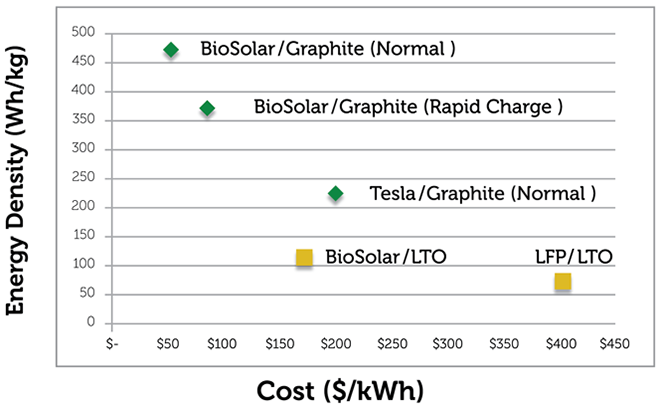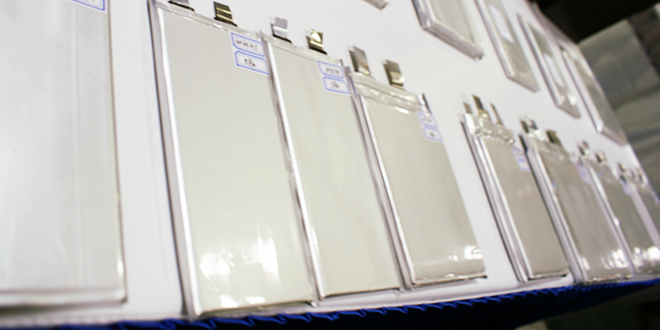Energy storage startup BioSolar (OTCQB: BSRC) will extend a sponsored research program at the University of California, Santa Barbara to further develop its “super battery technology.†The extension funds the research program until June 2016.
BioSolar’s baby is a novel polymer cathode that leverages fast redox-reaction properties, rather than conventional lithium-ion intercalation chemistry, to enable rapid charge and discharge.
In a 2014 paper published in Advanced Materials, Dr. Alan Heeger and Dr. David Vonlanthen described a polyaniline-supercapacitor with quinone electrolytes that remained stable over 50,000 galvanostatic charge-discharge cycles. The work showed that highly stable polymer-supercapacitors can be engineered by combining electrochemically active polymers and redox-active electrolytes.


The stable redox chemistry of BioSolar’s cathode material can enable longer life. In the lab, it can easily cycle more than 50,000 times without degradation in supercapacitors, and the researchers believe that it can offer very long life in batteries as well.
The company predicts that a battery built using its technology could deliver a capacity of 459 Wh/kg at a price of $54/kW. Applied to an EV, that could translate to roughly twice the range at a quarter of the cost of current batteries.
“We are confident that this team of scientific professionals will continue to progress the technology closer to our goal of achieving a $100/kilowatt-hour cost milestone for energy storage,†said Dr. David Lee, CEO of BioSolar.
Source: ChargedEVs



